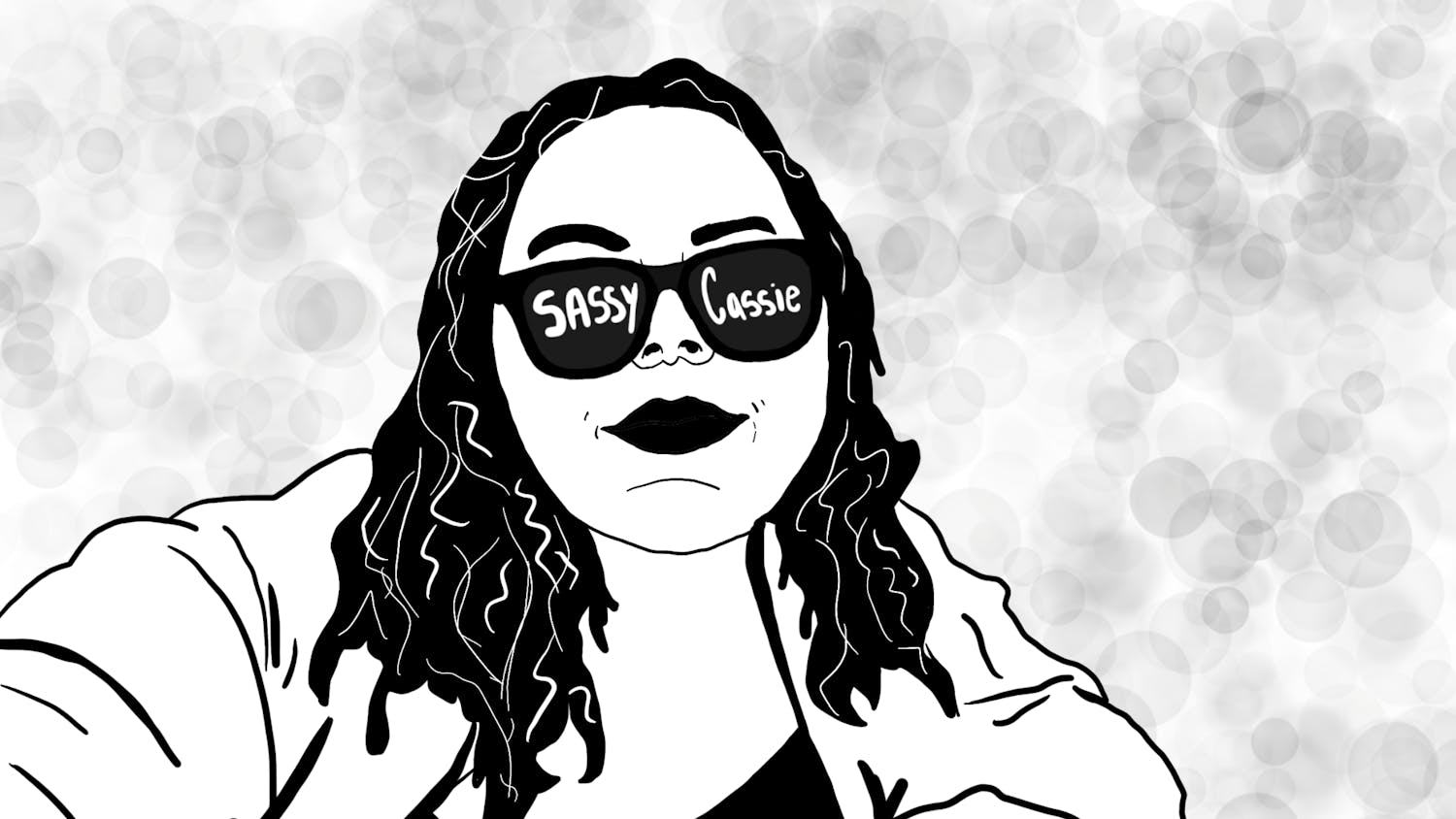Elections have really gotten to our heads this year, judging from the fact that the third sentence of every political analysis mentions Big Bird.
When an election cycle revolves around an oversized yellow-winged vertebrate teaching children their ABCs, you know the voters and candidates have really gone loopy.
But in retrospect, we should be thankful that this year’s elections are still relatively sane. At least we won’t be choosing from candidates from parties like the Vampires, Witches and Pagans Party for President.
No, that name is not another group getup for the Halloween Block Party. Nor is it the name of another absurd Twilight fan club.
The Vampires, Witches and Pagans Party is a real, legitimate political party in the United States recognized by the Federal Election Commission (FEC).
It even fielded a candidate for the presidency in both 2004 and 2008, a professional-wrestler-turned-vampire who goes by the friendly name Jonathon “The Impaler” Sharkey.
Sharkey has led, to say the least, a colorful career. After serving in the military and attending Kansas State University, Sharkey became a renowned wrestler and boxer, working for WWE wrestling champion Rocky Johnson. He even personally trained Johnson’s son, Dwayne “The Rock” Johnson.
Later on, Sharkey declared himself to be a real-life vampire and Satanist, and after a stint as a musician and filmmaker, Sharkey turned to running for office, founding the Vampires, Witches and Pagans Party. He ran for President of the United States in both 2004 and 2008, on a platform advocating vampire recognition.
In an interview with ABC News, Sharkey also promised to cut crime rates by taking certain criminals and having them “brutally tortured and impaled.”
Subsequently, Sharkey stated: “Upon them being found guilty of their crimes I’ll beat them, torture them, dismember them and decapitate them on the Capitol lawn.”
Pleasant fellow.
Sharkey made perhaps the most interesting statement (and most amusing, depending on your political stance) when he was asked if he believed he had a chance of being elected, to which he responded: “Yes, I have a chance of winning. People like Sarah Palin are making it quite easy to pull off.”
While the U.S. has its Sharkeys (and Palins), Canada has the “Rhinoceros Party,” which is also legally registered by its federal elections committee. The political party is technically called the Second Rhinoceros Party, since an original First Rhinoceros Party once existed.
The Rhinoceros Party was founded by Francois Gourd, who officially called the party “NeoRhino,” which he says is named in memory of the main character of The Matrix, Neo. The party runs on the platform slogan of “promising not to keep promises.”
In addition, the party claims to be the spiritual descendants of Cacareco, a Brazilian rhino that had been elected to the city council of Sao Paulo in 1958, and names as its official leader Cornelius the First, a real rhino of the Granby Zoo of Montreal.
In explaining why it chose rhinoceroses as the party symbol, the Rhinoceros Party stated that rhinoceroses were fitting since they resembled politicians in that both were “thick-skinned, slow-moving, dim-witted, can move fast as hell when in danger and have large, hairy horns growing out of the middle of their faces.”
It seems that Canadian politicians must be just as bad as American ones, with the one difference being that Canadian politicians look more like Darth Maul.
While Americans have their vampires and Canadians their rhinos, Russians have their beer. Lots and lots of support for beer.
Russia has its own registered Beer Lovers Party, whose goal is the “protection of interests of beer lovers regardless of racial, national or religious affiliation.” Originally intended as a “joke political party,” the Beer Lovers Party became a legitimate, politically focused party in 1995 when Russian entrepreneurs took up the party and rewrote its platform to reflect their interests in the government.
Now, the modified slogan reads thusly: “will defend interests not only beer lovers, but also lovers of sausage, butter, meat, tea, kvass and other lovers, with the exception of lovers of power.” Which, of course, widely expands the electorate that the party appeals to. After all, who doesn’t love meat?
Perhaps the one flaw of the party’s platform is the absence of vodka. I mean, who talks about love of alcohol in Russia without mentioning vodka?
Because the party was officially registered, it even received 115 million rubles ($3,704,184.50) from the Central Election Commission of Russia, and an additional 777 million rubles ($25,027,403.10) from individuals and businesses such as Rebirth Bank, MBTS Bank and Moscow Telecommunications Corporation. In total, the campaign spent 1.07 billion rubles ($34,465,021.00) in the 1994 elections.
But for all the money that Russians invested in their beer, the Beer Lovers Party won only 0.62% of the vote.
Come to think of it, I’m almost absolutely certain that it was the vengeful vodka lovers who wrecked their campaign. You don’t leave vodka out of a campaign in Russia. You just don’t.
Kevin Hwang is a senior at Athens High School who is taking classes at Ohio University. Would you vote for a vampire? Email Kevin at kh319910@ohiou.edu.





